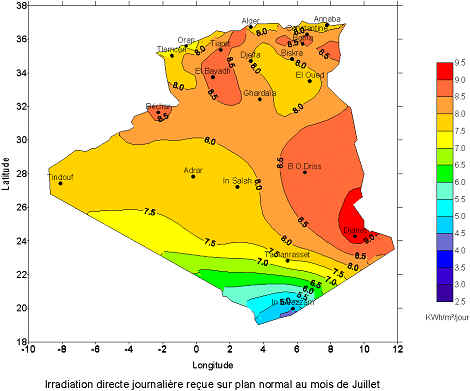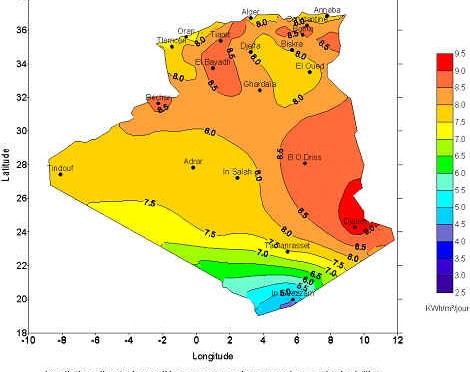Algeria’s National Electricity and Gas company (Sonelgaz), through its subsidiary Sonelgaz-EnR, has just signed concession agreements with several local and transnational companies for the financing, construction and operation of 3,000 MW of photovoltaic solar energy. A decisive turning point for this North African country dependent on fossil fuels.
Is Algeria ready to embark on its energy transition? In this North African country, all the signs are now green. The National Electricity and Gas Company (Sonelgaz), which is focusing its strategy on the private sector, recently signed 20 concession contracts with companies and consortia through its subsidiary Sonelgaz-EnR, for the installation of 3,000 MW of installed capacity.

The concessionaires were selected following two invitations to tender, the first for 1,000 MW, launched in 2022, for the construction of five solar photovoltaic plants with a capacity of between 50 and 300 MW in the wilayas (regions) of Laghouat, Ouargla, Tiaret, El Oued and Béchar. The second call for tenders, launched in 2023, covers the construction of 15 solar farms with capacities ranging from 80 to 220 MW in Béchar, M’Sila, Bordj Bou Arreridj, Batna, Laghouat, Ghardaïa, Tiaret, El Oued, El Tarf, El M’Ghair, Biskra and Ouled Djellal.
A rush of Chinese companies
For this second phase, Sonelgaz-EnR is aiming for a capacity of 2,000 MW. Several investors qualified a few months ago for its development. These independent power producers (IPPs) include some fifteen Chinese companies, the best known of which on the African energy scene is PowerChina, which has formed a partnership for the purpose with its compatriot Sinohydro, which has a reputation for building hydroelectric infrastructure.
There is also China Petroleum Engineering and Construction, the subsidiary of China National Petroleum Corporation (CNPC) that is pumping oil in the Termit and Tin-Toumma National Nature Reserve (RNNTT) in Niger. These Chinese companies were in competition not only with the local subsidiary of the Lebanese group Butec, but also with Turkish companies and a number of Algerian firms.
A late awakening?
With these two waves of solar power plants, Algeria is hoping to catch up with its neighbours in the North African sub-region, who have the same solar potential. These include Morocco and especially Tunisia, where solar programmes have been stalled for several years, as well as Egypt, which already operates an installed capacity of 1,650 MWp (connected to the national electricity grid) in the governorate of Aswan. These are projects to watch over the coming months.
Sonelgaz is deploying this 3,000 MW of solar capacity as part of the Renewable Energy Development Programme launched by the Algerian Ministry of Energy, with the aim of deploying 22,000 MW of capacity by 2030 “for the national market, while maintaining the export option as a strategic objective, market conditions permitting”. Above all, this programme will help Algeria to reduce its use of fossil fuels to produce electricity.
Moving away from dependence on natural gas
According to Sonelgaz, Algeria currently has an installed capacity of 24,000 MW. More than 98% of this electricity is generated from liquefied natural gas (LNG), a resource for which Algeria is also the leading exporter in Africa, ahead of Nigeria. This dependence on gas is reminiscent of the situation in another country, South Africa, which has to contend with the obsolescence of its coal-fired power stations.
But in Algiers, the government insists that gas is one of the transitional energies. The issue is all the more controversial given the passion with which public opinion is divided across Africa, from the Democratic Republic of Congo (DRC) to Senegal, via Ivory Coast and Nigeria. These countries are also preparing to start exploiting their natural gas deposits.
By Jean Marie Takouleu


